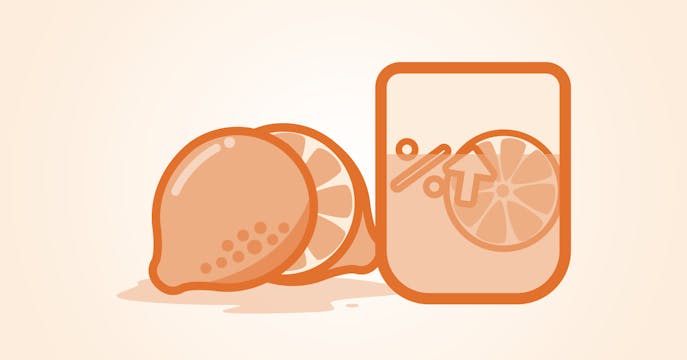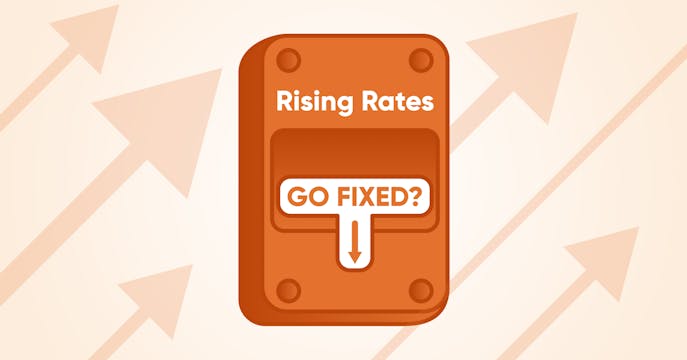Lowest Mortgage Rate in Canada. Starting from 2.49%
Incoming! A BoC rate hike (again).
It's a double-hit of 0.50%.
The central bank's policy rate is propelled to 3.75% and bank prime rates likely to 5.95%. Is there some good news to be had? (Hint: yes.)
Going for the 'tuck and roll' on this one.
Another rate hike to absorb (though held at 0.50% instead of the 0.75% rise many expected). Today makes six rate increases so far in 2022, with one last Bank of Canada rate announcement coming on December 7 (that's as much as we want to jinx it right now).
Now sitting at 3.75%, it's the highest trendsetting overnight rate since 2008. Here are some other fun numbers:
- Highest ever: 20.78% – July 1981 (Global Oil Crisis; before the inflation target rate was introduced)
- Lowest ever: 0.25% – May 2009 to March 2010 (after the Great Financial Crisis); and again from April 2020 to March 2022 (Global Pandemic)
- Turn of the century: 5.75% - December 2000 (highest of that year)
- When True North Mortgage opened its first store: 4.0% – June 2006
But we're rollin,' rollin,' rollin,' with the latest hike — right into helping you make the right mortgage decisions to cope.
What does this latest hike mean for your mortgage?
If you hold a variable rate mortgage, you're weathering another budget hit for your mortgage payments — assuming you hold an Adjustable-Rate Mortgage (with floating payments).
If you have a static payment Variable-Rate Mortgage with a big bank, you may have already hit your trigger rate. But whether you have or not — we strongly recommend taking a look at how your fixed payment may be affecting your amortization and future mortgage savings. Need help running the numbers? Give us a shout.
Fixed mortgage rates? Last week, bond yields shot up again after the latest inflation numbers were released, pushing up fixed rates in anticipation of today's rate announcement. Depending on how many months or years you have left in your term — your renewal time rate may provide a sharp contrast to the low one you enjoyed for a while.
The good news? We're right here to help with your best rate and the right advice to save the most. Depending on your situation, you may be able to extend your amortization to lower your payments for budget room or change your payment type to get ahead of higher rates.
It's never been more important to have the right product with your rate.
If you need to make a change and your mortgage product came with a bargain-bin rate, make sure you understand the fine print. You may find that you have restrictions like a bona-fide sales clause or have to pay higher penalties (at today's prime rate instead of your original contract rate).
At True North, we go the extra mile to ensure you have a better mortgage along with your great rate. Flexible options can make the difference when you want to put some cash down on your principal or need to move.
Will there be changes to the mortgage stress-test rate?
To be able to afford your mortgage, it's a federal requirement that lenders run the numbers to make sure you can still handle your payments at 2% above your actual rate. For example, with our current best 5-year fixed rate of 5.19%, plus 2% means you need to qualify at 7.19%.
That qualifying rate seems pretty high right now, with many saying that rates won't get that high and it's keeping buyers from entering the market. But OSFI (Office of the Superintendent of Financial Institutions) credits it with helping many current Canadian homeowners 'roll' with these recent rate hikes.
Whether or not OSFI will adjust their stress-test requirement during its December meeting remains to be seen. But it doesn't look like they're that unhappy with the safety-net results, and may keep it in place.
Home prices are lowering. Does that offset higher rates?
For the most part, depending on where you're looking to buy, higher rates haven't necessarily impacted affordability for the worse since this past spring.
When home prices were at their peak in March 2022, rates were rock-bottom. But even though rates are higher now, home prices are coming down (according to the MLS® Home Price Index) and affordability is still about the same:
A lower home price means more than just a lower mortgage amount: you pay less on everything related, like default insurance and closing costs.
So if you thought that higher rates are making it a lot less affordable, declining home prices — or finding a lower-priced home — can help offset some of the higher-rate impact for your purchase.
Other ways to afford a home
Home prices are tempering in some areas, with many seeking out other cities or towns in Canada to get into the real estate market or down-size their mortgage.
Pooling resources to share ownership is also attracting interest, such as co-ownership or multigenerational mortgages. Those with credit or income obstacles can look into getting a co-signer or guarantor to push their mortgage application over the hurdles with a lender. And rent-to-own models may work for the serious-minded renter (but beware you may lose your down payment if it doesn't work out).
Our highly trained brokers can give one-on-one advice in your preferred language — while providing an easy, breezy mortgage process.
Why are we having to roll with another increase?
Inflation is too high and not coming down enough between readings. The Bank of Canada's primary purpose is to get inflation back in line as quickly as possible to avoid even more future economic heartache. The global pandemic (which is still causing market turmoil, along with other volatile global factors, like the war in Ukraine and a high U.S. dollar) has many world economies still trying to stick the landing.
Historically speaking, a 3.75% central bank rate isn't actually that high, but compared to the relatively low-interest period we've seen for a number of years, it's a sharp budget adjustment that many are dealing with for the first time. We're hoping the end is in sight, with experts possibly eyeing a terminal rate of 4.25 - 4.5%, unless there's enough to convince the BoC to pause and let these latest hikes do their restrictive economic work.
Will this latest hike cause a recession?
It just might. Some experts are cautious about using the 'R' word, while others are fervently discussing its imminent arrival sometime next year. While a recession can bring its own economic trouble (like potential job losses), the silver lining is that rates will likely be brought down in response as inflation lowers.
Fact: A recession is technically considered an economic contraction reported for at least two financial quarters in a row, but typically a pronounced and persistent period of economic decline.
Feeling a little too square to roll with today's rate increase?
We can help you smooth out those sharp (mortgage) corners with helpful, targeted advice for your situation, to keep the budget rolling along as you adjust to higher rates.
Our you-first service puts you, well, first — in choosing the right product and lender and in helping you find ways to save. Every dollar counts, and every True North Mortgage broker here goes the extra mile for your best experience (in your preferred language).



